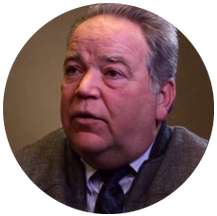The surveillance video clearly showed her reaching into a bowl next to the cash register and pulling money out. The bowl held money donated to help the families of two slain police officers.
Separately, prosecutors in federal court presented financial records proving that the comptroller for a small manufacturing company embezzled a six-figure sum over two years.
And the head of a government agency in a small town had to step aside after he was convicted of theft in office. He was spending a lot of time away from the office while his salary was being paid by the public.
Common crimes? Yes. But there’s another common thread that connects these three examples. Each one took the money to support their addiction — an addiction not to drugs or alcohol, but to gambling.
The U.S. Department of Justice published a study exploring the link between gambling and crime. The research team from the University of Nevada, Las Vegas interviewed people who had been arrested for crimes to probe their gambling behavior and its relationship to their crimes.
They found that:
- The percentage of problem or pathological gamblers among the arrestees was three to five times higher than in the general population.
- Nearly one-third of arrestees identified as pathological gamblers admitted having committed at least one robbery in the previous year.
- Approximately 13 percent had assaulted someone for money.
- Pathological gamblers were much more likely to have sold drugs than other arrestees.
Their study sent a message to policymakers that incarceration without treatment may accelerate and exacerbate the reckless behaviors exhibited by pathological gamblers. The researchers encouraged authorities to pay more attention to gambling behaviors in detention centers, jails and prisons and provide the necessary interventions.
Maryhaven is working with the Public Defender’s office so that those leaving incarceration who need help can participate in outpatient gambling treatment. At the state level, we are attempting to bring gambling education into the prisons (including Gamblers Anonymous). We also have provided free educational sessions to attorneys, probation officers, judges and magistrates so they can better identify clients who may be struggling with gambling addiction.
Clearly, someone who resorts to theft, embezzlement or forgery to “get one more roll,” has advanced far into his or her disease. And as many of our clients can tell you, the costs can be enormous – lost wages, legal fees, felony records that can often keep us from future employment – the list is endless. Far better to get help before reaching this crisis stage.
Employers, families and friends of people who gamble also may be able to prevent a crisis. Though problem gamblers often hide their disease, there are signs and red flags to watch even as co-workers and employers.
The California Council on Problem Gambling recommends that employers offer training about the signs of gambling addiction and let employees know about the resources available to help a colleague who is at risk. The state of Ohio has put together similar trainings and Maryhaven can assist you with education resources if interested.
Family members and loved ones can watch for some of the same signs including frequent unexplained disappearances from work or home life functions, increased arguments about money and bills, borrowing increasingly larger sums of money from family and friends.
At Maryhaven, we provide treatment, as well as access to resources for people who may be falling victim to the disease.
The police officers’ families still received donations. The manufacturing company rebounded from the embezzlement and remains open. The government agency hired a new director and continues to serve its constituents. But the individuals who committed the crimes face life-long climbs back from the depths their disease pushed them into.
Maryhaven provides comprehensive, coordinated and caring services to help you or a loved one dealing with gambling addiction or another mental health or substance abuse disorder. Our services also extend to family members coping with a loved one’s pathological gambling. Give us a call and let us be your holistic behavioral and addiction health specialists.
Call 614-324-5425 or contact us confidentially online today.

